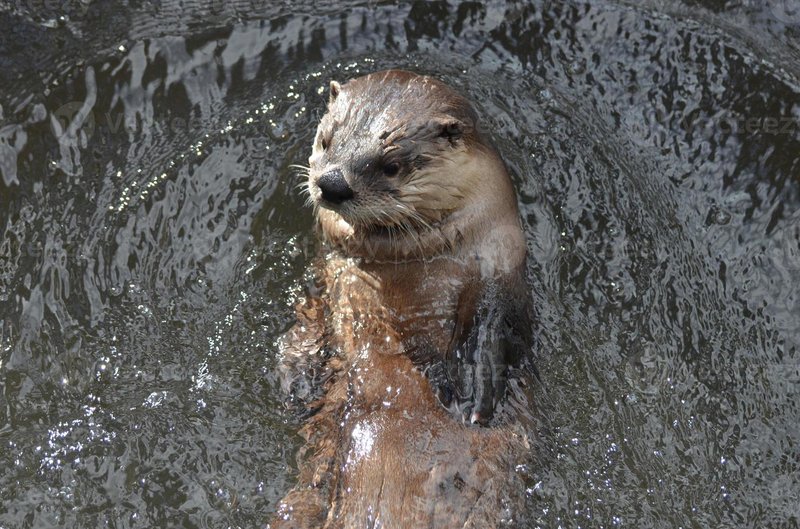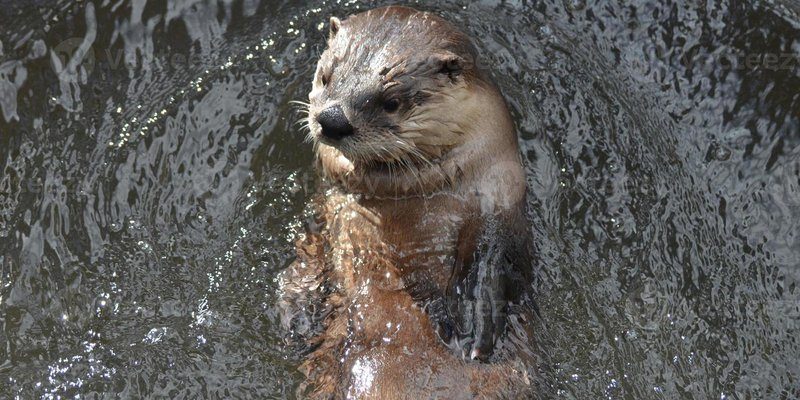
In this article, we’ll dive into the fascinating world of river otters. Think of it as a journey into their minds—how they learn, communicate, and solve problems. From their playful behavior to their remarkable adaptability, we’ll explore the many ways river otters show their intelligence. So, grab your favorite drink and let’s jump into the intriguing cognitive world of river otters!
The Intelligence of River Otters
When we talk about the intelligence of river otters, we’re really looking at a few key areas—problem-solving, social behavior, and communication. River otters belong to the weasel family, which generally includes clever little critters known for their smarts. Research suggests that otters have a level of intelligence comparable to that of dogs. Imagine that! They can learn and adapt in ways that can be quite surprising.
River otters are excellent at problem-solving. They can figure out how to open shells and catch slippery fish, showing a knack for tackling challenges head-on. For instance, if one otter can’t access a fish trapped in a rock crevice, you might see another otter come along to help. This collaborative behavior not only highlights their intelligence but also their social understanding—working together often leads to better results.
Their cognitive abilities also shine through in play. Play fighting, sliding down mud or snowbanks, and chasing each other around are not just for fun. These activities help otters develop crucial skills they’ll use in adulthood, such as hunting and social interaction. It’s like a playful classroom where they learn about life through trial and error.
Social Structure and Communication
River otters are social animals, often found in family groups or rafts. Their social structure is essential to their survival and reflects their intelligence. They communicate regularly through a variety of sounds, including whistles, growls, and even chirps. You might be wondering how important communication is in the wild. Well, it helps them coordinate activities, warn each other of danger, and establish social bonds.
For instance, when a river otter spots a potential threat, it can emit a quick series of barks or whistles to alert others in the group. This quick communication can make the difference between safety and danger. It’s almost like a secret language that only they understand, helping them to stay connected.
In addition to vocalizations, otters also express themselves through body language. A playful roll or a defensive stance can convey their mood or intent. By being able to read each other’s signals, river otters strengthen their relationships and ensure group cohesion.
Learning and Adaptability
Adaptability is another mark of intelligence. River otters can thrive in various environments, from rivers to lakes to coastal areas. They’re skilled at adjusting their hunting tactics based on the availability of food. For example, if fish are scarce, they might switch to hunting small mammals or even birds. This flexibility shows their ability to learn and adapt, which is a strong indicator of intelligence.
Young otters, or pups, learn from watching their mothers and siblings. Their learning process often involves observing others and mimicking their actions. For instance, a pup may watch its mother expertly catch fish before attempting it themselves. This kind of observational learning is crucial for developing their skills and knowledge about their habitat.
Moreover, river otters have excellent spatial memory, allowing them to remember locations of their favorite fishing spots or burrows. They can even navigate through their often-complex home ranges with surprising precision. Imagine trying to find your way through a maze; that’s kind of what it’s like for them. Their impressive memory and learning capabilities truly make them remarkable survivors.
Playful Behavior and Its Significance
Play is a big part of what makes river otters so unique. You’ll often find them sliding down mud or snowbanks, wrestling with each other, or even playing with objects like sticks. You might think they’re just having fun, but playtime is serious business for otters. It’s a critical aspect of their development and socialization.
Through play, young otters learn vital skills needed for survival, such as hunting techniques and social interaction. It’s also a way to strengthen social bonds within their family group. Just think of it like a bonding session—when they play together, they build trust and familiarity, which are key components of their social structure.
Additionally, the playful antics of river otters can teach us about the importance of play in our own lives. Just like otters, engaging in play can boost our creativity, problem-solving skills, and overall well-being. It’s a beautiful reminder that play isn’t just for kids; it’s an essential part of life for all of us.
Environmental Challenges and Conservation
Unfortunately, river otters face several environmental challenges today. Habitat destruction, pollution, and climate change all threaten their populations. As intelligent animals, they can adapt to many situations, but these rapid changes in their environment pose significant threats. If you’re wondering why this matters, think about it: healthy river otter populations indicate a thriving ecosystem. They play a crucial role in maintaining the balance of their habitats.
Conservation efforts are underway to protect river otters and their habitats. These initiatives focus on creating clean environments and ensuring that the otters have adequate spaces to live and thrive. By engaging in conservation efforts, we can help ensure that future generations will continue to marvel at the playful and intelligent behaviors of these remarkable creatures.
If you ever get a chance to see river otters in the wild or at a nearby aquarium, take a moment to appreciate their smarts and the role they play in nature. Supporting local conservation efforts can have a substantial impact on their survival.
Final Thoughts on River Otter Intelligence
River otters are much more than just cute, fuzzy animals frolicking in the water. Their cognitive abilities and behaviors reveal a world of intelligence that’s both fascinating and vital for their survival. From their clever problem-solving and communicative skills to their adaptability and social interactions, river otters show us just how complex and interesting wildlife can be.
As you reflect on the intelligence of river otters, remember that these clever creatures remind us of the importance of protecting our natural world. Every effort counts from conservation to awareness. So the next time you think about river otters, know you’re thinking about some of the smartest and most playful inhabitants of our planet. Let’s continue to appreciate and protect them, ensuring their playful spirit lasts for generations to come!

